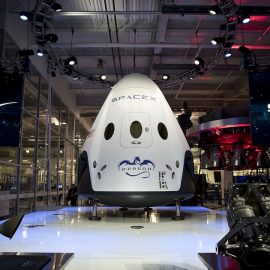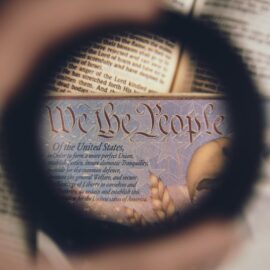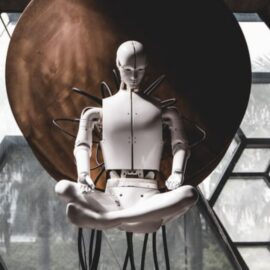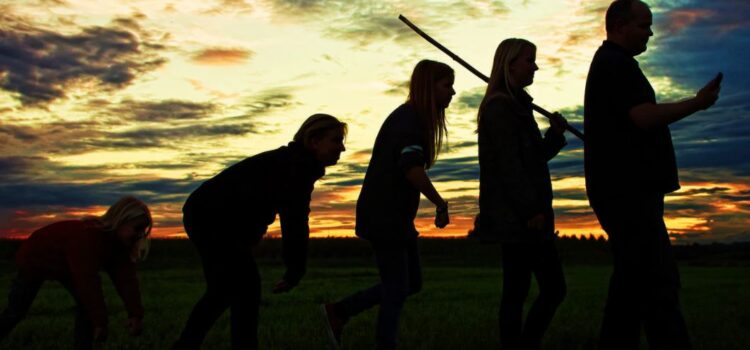
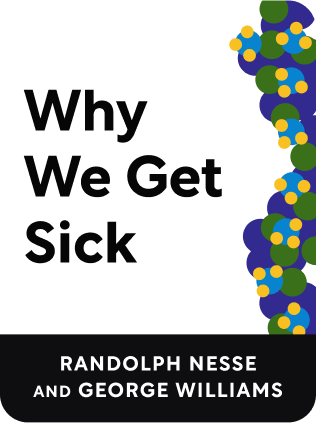
This article is an excerpt from the Shortform book guide to "Why We Get Sick" by Randolph Nesse and George Williams. Shortform has the world's best summaries and analyses of books you should be reading.
Like this article? Sign up for a free trial here .
What does the phrase “survival of the fittest” actually mean? How does natural selection happen?
In the phrase “survival of the fittest,” the “fittest” actually refers to reproductive capabilities. Darwinian evolution says that evolution will favor the genes that allow the individual to produce the most viable offspring.
Continue reading for more information about how natural selection works.
How Natural Selection Works
How does natural selection work? Natural selection is often thought of informally as “survival of the fittest,” but this is a confusing phrase. People often have the wrong idea of what “fitness” means. It doesn’t mean fitness in the everyday sense of good health and long life.
In Darwinian terms, a higher fitness means more reproduction and a greater number of viable offspring. If a gene leads to production of more viable offspring in future generations, that gene will be enriched in the population. Likewise, if a gene codes for characteristics that result in fewer viable offspring in future generations, that gene is gradually eliminated.
Taking the phrase “survival of the fittest” again, we now see that “survival” is important for natural selection only insofar as it increases reproduction. If a gene helps an individual survive longer, but at the expense of having fewer offspring, that gene will show up less often in the gene pool.
Genes that increase lifetime reproduction will be selected for, even if they reduce the individual’s longevity.
This is one reason that we haven’t evolved away common diseases—the genes that cause gout and dementia later in life may actually increase our reproductive fitness earlier in life.
Look for Alternative Explanations
A key takeaway: when we find something that seems like an error in natural selection, more likely we are missing some important function that compensates for the deficit.
There’s a parable of Henry Ford when he asked a car engineer, “Is there anything that never goes wrong with any of these cars?” The engineer responds, “Yes, the steering column never fails.” Ford responds, “Redesign it. If it never breaks, we must be spending too much on it.”
Likewise, the body has evolved to be a set of compromises. Some traits might increase vulnerability to some diseases, but still give an overall fitness advantage.
Nuances of Natural Selection
A gene’s contribution to fitness is not determined in isolation. It’s measured in a particular species in a particular environment. Change the environment, and the gene may no longer increase fitness.
For example, imagine a population of rabbits in the forest. Half of them have a gene that makes them more timid at venturing out in the open, which decreases their chance of being eaten by foxes. The other half doesn’t have this gene. The timid half spend more time hiding in their dens, and so they tend to be less well fed than the bolder half.
The environment changes, and a very harsh winter arrives. The timid half stay in their rabbits’ dens, and most of them starve to death. The bolder half venture out and get food; while the bold rabbits are more likely to be eaten by foxes, they also eat more in the winter, and so a greater fraction survives than the timid half. Over a series of harsh winters like this, the timid gene may be eliminated from the population.
Change the environment, and the gene may no longer increase fitness. As we’ll discuss later, this may be the case for a variety of genes that lead to disease in our abundant modern environment, like heart disease.
Natural Selection Arises by Chance
Natural selection operates by chance. Whether a population develops any particular trait depends on a string of random events:
- Whether the mutation is created by random chance
- Whether the bearer of the mutation will live long enough to show the beneficial effects to fitness
- How random events influence the individual’s reproductive success
- Whether the gene is by chance eliminated in the next generation
- How unpredictable environmental changes affect the gene’s fitness
This randomness has a number of implications:
- Natural selection will not create every adaptation that would be valuable. Because gene mutations happen by random chance, and there is a finite number of humans each generation, not all possible mutations are created. There are likely very beneficial mutations that no human has ever carried.
- Even if a helpful gene mutation is created, it may not persist long enough to be selected for in the species. A mutation may arise in a person, but random chance may prevent that person from passing on the helpful gene to offspring.
- Natural selection does not always take the best path for the long-term welfare of a species. While we wish that genes would arise that extend lifespan and decrease diabetes, natural selection has no agenda about our well-being or happiness. In some sense, natural selection could be mis-optimizing for reproductive fitness, when we would rationally opt for other traits even at the expense of reproduction.

———End of Preview———
Like what you just read? Read the rest of the world's best book summary and analysis of Randolph Nesse and George Williams's "Why We Get Sick" at Shortform .
Here's what you'll find in our full Why We Get Sick summary :
- Why evolution hasn't rid humans of all diseases
- How reproductive fitness is more important than overall survival
- How you evolved to dislike the sound of a baby crying


